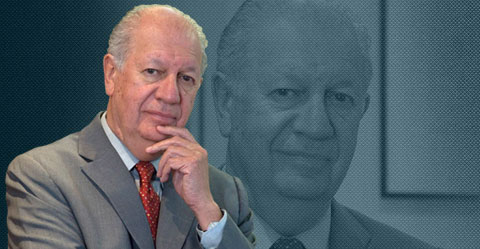
(c) Claudio Santana. Cortesía Fondo de Cultura Económica
A few weeks ago, I introduced the publishing phenomenon Capital in the 21st Century by the French economist Thomas Piketty in Chile. The book is a 700 page study written in technical language accompanied by a sea of statistics that focuses on unequal distribution of income and wealth in contemporary capitalism.
Why has a treatise like this become a global bestseller? Firstly, because it shows, using irrefutable statistical analyses – the most complete studies ever undertaken – that develo
ped countries have regressed and now present the most unequal levels of income distribution since before the First World War.
Since the industrial revolution, societies have believed that an increase in the production of goods and services would lead to greater wellbeing and living conditions for their people. After the Second World War, the growth in per capita GDP became generalized as a standard measurement for growth and economic wellbeing and thus the ultimate objective for development policies. This became an established paradigm in developed countries: countries whose average annual income per inhabitant is above 20 thousand dollars.
Following Piketty’s analysis, we can see that today, in the 30 richest countries in the world, the distribution of income has a major effect on indicators such as health, life expectancy and education. The most equal countries in the world have a lower percentage of their population in prison and lower drug consumption rates. The case of New Zealand, for example, is notable: its per capita GDP is 30% lower than that of the United States and yet its population has a greater life expectancy and several more superior indicators.
So, how can we make economic progress and also achieve equitable growth? Following the advice of the Italian philosopher Norberto Bobbio ‘we should all be equal in something at least,’ the countries that are reaching the barrier of 20 thousand dollars per habitant, such as seven countries of Latin America, now face the challenge of developing a ‘minimum degree of civilization’. This concept guarantees the goods and services that each society defines as essential and ensures that their citizens have universal access to them. In the case of Chile, for example, at the beginning of the 20th century free primary school education was available and obligatory for four years. This was then extended to eight and decades later to a complete secondary school education. Today, now that a full schooling is guaranteed, the demands of society have extended to equality of opportunity in higher education as well.
The challenge, then, is to build societies defined by the votes of the citizenry, where the State has the ability to meet their demands with public policies rather than through the market, which will only perpetuate the inequalities present in the system. So, we must aim to situate ourselves closer to New Zealand than the United States and achieve our own minimum degree of civilization.
Leave a comment



